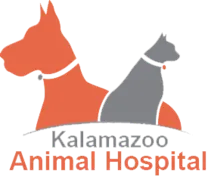We know that it is stressful when your pet needs to have a surgical procedure. Whether it's something fairly routine like a spay or neuter or a more involved procedure such as a cystotomy (surgical removal of bladder stones), enucleation (surgical removal of an eye), removal of a tumor, or something else entirely, we give all surgical patients the same attentive, thorough care to help ensure the best outcomes possible.
While no procedure is 100% risk-free, we minimize risk by:
1) Ensuring that we have examined your pet thoroughly prior the procedure. Your pet must be an established patient with a current exam on file prior to scheduling surgery. Your pet's surgeon will also perform a complete physical examination the morning of the procedure.
2) Performing pre-anesthetic bloodwork on patients undergoing general anesthesia. All surgical and dental patients must have a blood chemistry panel and complete blood count (CBC) performed within 30 days of the procedure. Often, we perform the testing in-house just before the procedure so we can make sure that the results are current and accurate.
3) Placing an intravenous (IV) catheter for all anethetized patients. An IV gives us a direct port to administer medications and fluids in the event that your pet needs them. Rather than wait for a problem then scramble to access a vein, we make sure that we have a functional IV catheter before, during, and after the procedure.
4) Anesthetized patients are always monitored by a licensed veterinary technician. The doctor can focus on the surgery itself while the technician acts as the anesthetist with her full attention on your pet's anesthetic depth, heart rate, respiratory rate, and more.
5) Using electronic monitors to track your pet's vital signs during the procedure. In addition to using her eyes, ears, and hands to monitor your pet, our technicians also use monitors to track vital signs. These vitals are logged every 5-10 minutes throughout the procedure.
What to Expect:
These are only basic guidelines for what to expect with surgery at Kalamazoo Animal Hospital. When your pet is scheduled, we will give you specific, individual instructions.
In general, we ask that you withhold your pet's food after 10 p.m. the night before the procedure. Your pet can have water right up until you leave to come to the hospital!
Arrive at the hospital between 8:00 and 8:15 a.m. the morning of the procedure. You will stay with your pet for a 15-20 minute check-in with the surgical team, including your pet's surgical assistant or technician and the surgeon. We will address any questions or concerns you may have and go over any necessary information about your pet's procedure. We will also have you sign a consent form for the procedure. Your pet will then stay with us for the day.
Your pet's surgeon will give you a call later in the day when your pet's surgery is complete (we will also call during the procedure if necessary!) to go over the details of the procedure and let you know when you can pick your pet up from the hospital. Surgery patients are usually dismissed beween 4:00-5:00 p.m., but this can vary depending on how quickly your pet is ready to head home.
When you pick your pet up, your pet's surgical assistant or technician will go over medications and discharge instructions from the surgeon. You will go home with written instructions for home care and healing.


